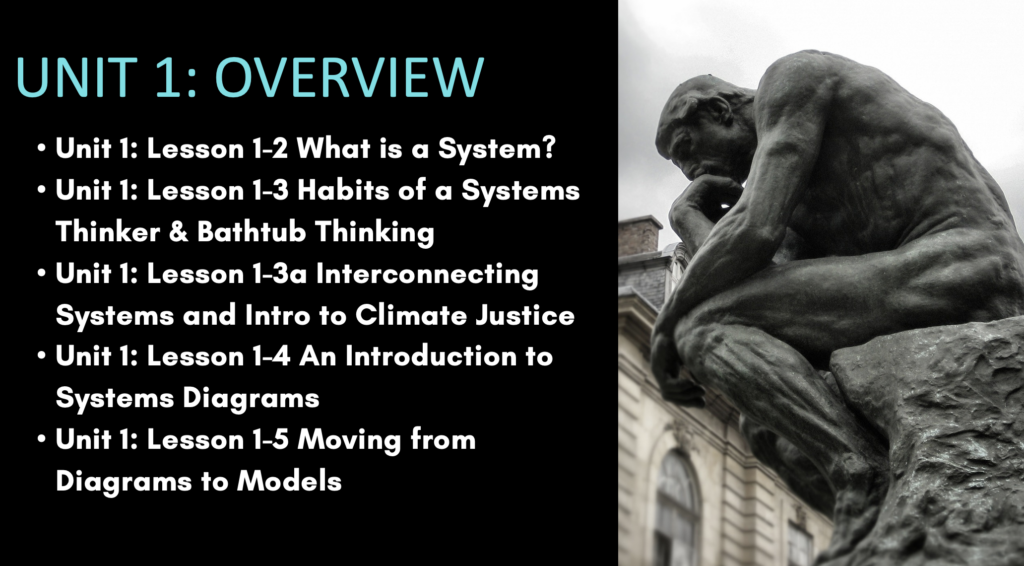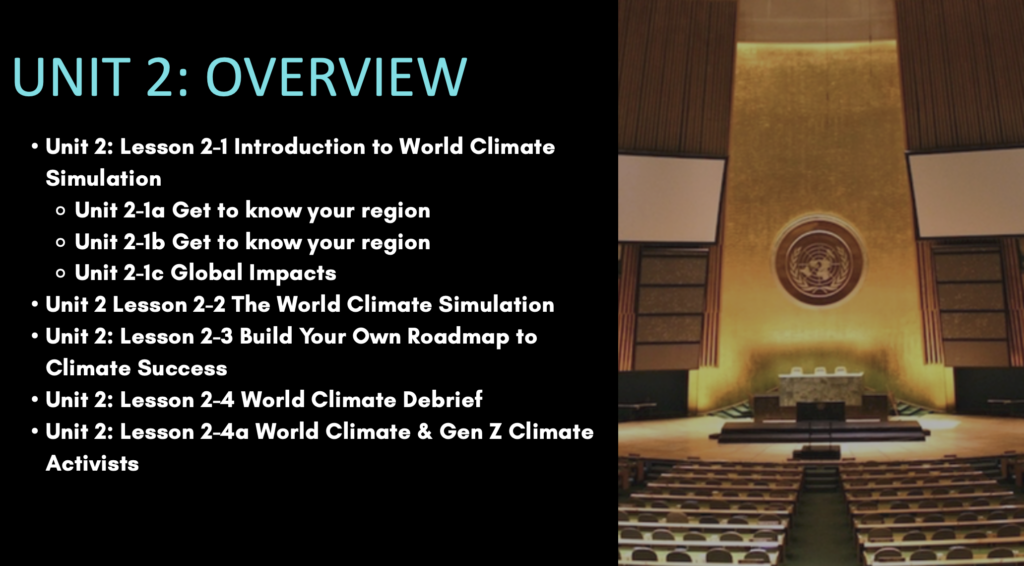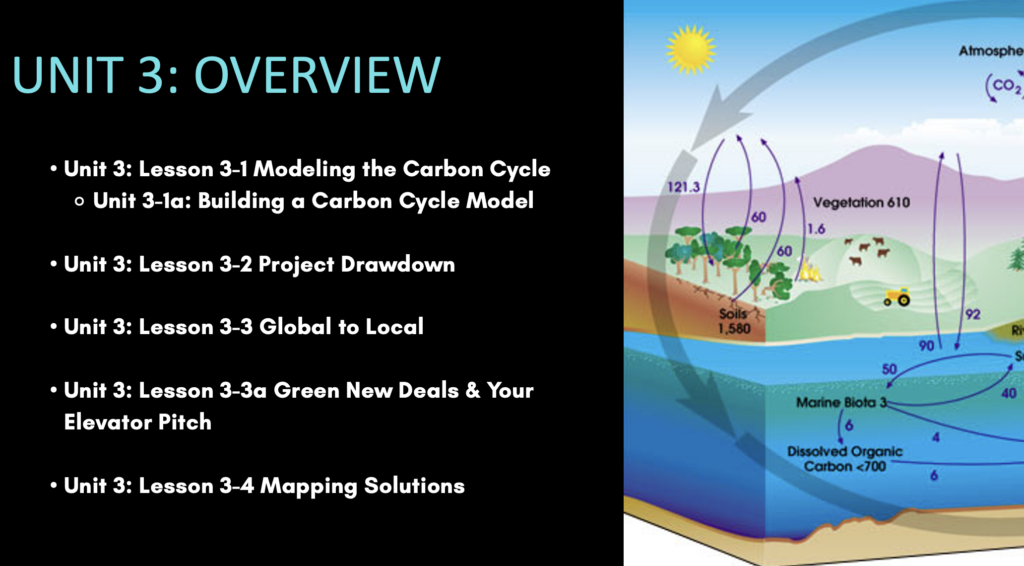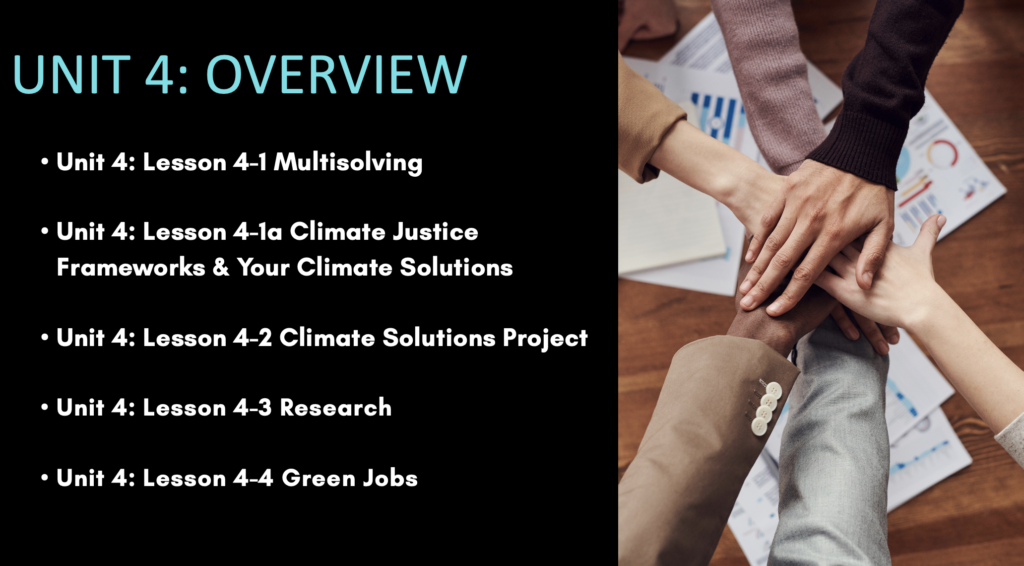All Hands on Deck Overview
The iStronG All Hands on Deck curriculum is a freely available and customizable climate change and systems thinking course piloted and iteratively tested with over 400 Upward Bound pre-college high school students from 2019 to 2021. The curriculum was developed with funding from an NSF iTest grant. Originally designed for six-week Upward Bound summer programs, the curriculum is divided into five modules containing 4-5 lessons each, with each lesson designed for a 50-minute class period.
You can find all student materials, teacher resources, and even student work products freely available and organized with instructor adaptability in mind. Whether you intend to build a semester-long program for your science classroom or seek stand-alone activities for a club, you are encouraged to customize All Hands on Deck to your students’ needs and desired classroom experience.
Curriculum Overview

Students define systems, identify their main components, and draw connections to systems in their own lives. They are introduced to the 14 Habits of a Systems Thinker and a fundamental systems thinking concept called “bathtub thinking.” They also explore climate justice concepts, familiarize themselves with diagramming methods, and work in a systems modeling software called Stella.
Students participate in the World Climate Simulation, a mock UN climate negotiation where each student represents a developed nation, a developing nation, or a special interest group (optional) to commit collective action towards international climate goals. Students learn about the scientific and political complexities of climate action at a global level.


Students test emissions reductions policies in a pre-built Stella model of the carbon cycle and practice model-building skills with a step-by-step modeling tutorial. They explore evidence-based solutions to draw down the levels of carbon dioxide in the atmosphere at a global level, and begin to design local applications of these global solutions for their community.
Students continue to discover the far-reaching influence of their solutions by investigating the principles of multisolving and frameworks for climate justice. They outline a research plan for their local solution, explore green careers, and continue to work on their projects until the culminating project showcase.


Students work on and present their local solutions for the remainder of the course. They also provide feedback on each other’s projects.
Climate Justice Modules
The climate justice modules within the iStronG curriculum interactively engage students with material on how the world’s most vulnerable communities are disproportionately impacted by climate change, and then guide them in centering justice and equity issues in their final climate solutions project. The University of California’s Center for Climate Justice explains that,
“climate justice recognizes the disproportionate impacts of climate change on low-income communities and communities of color around the world, the people and places least responsible for the problem. It seeks solutions that address the root causes of climate change and in doing so, simultaneously address a broad range of social, racial, and environmental injustices.”
Students will be exposed to climate justice in short videos, a discussion of The Green New Deal through frameworks from the Global Center for Climate Justice, and with an in-depth look at six generation-Z climate global climate activists.
Click the link above to preview the first of four climate justice lessons.
iStronG Instructor Resources ↗
Access the Teacher Guide and key materials.
To Download the Student Manual Click Here
If you are interested in viewing the 2019 version of All Hands on Deck, you can view and download the PDF here.
